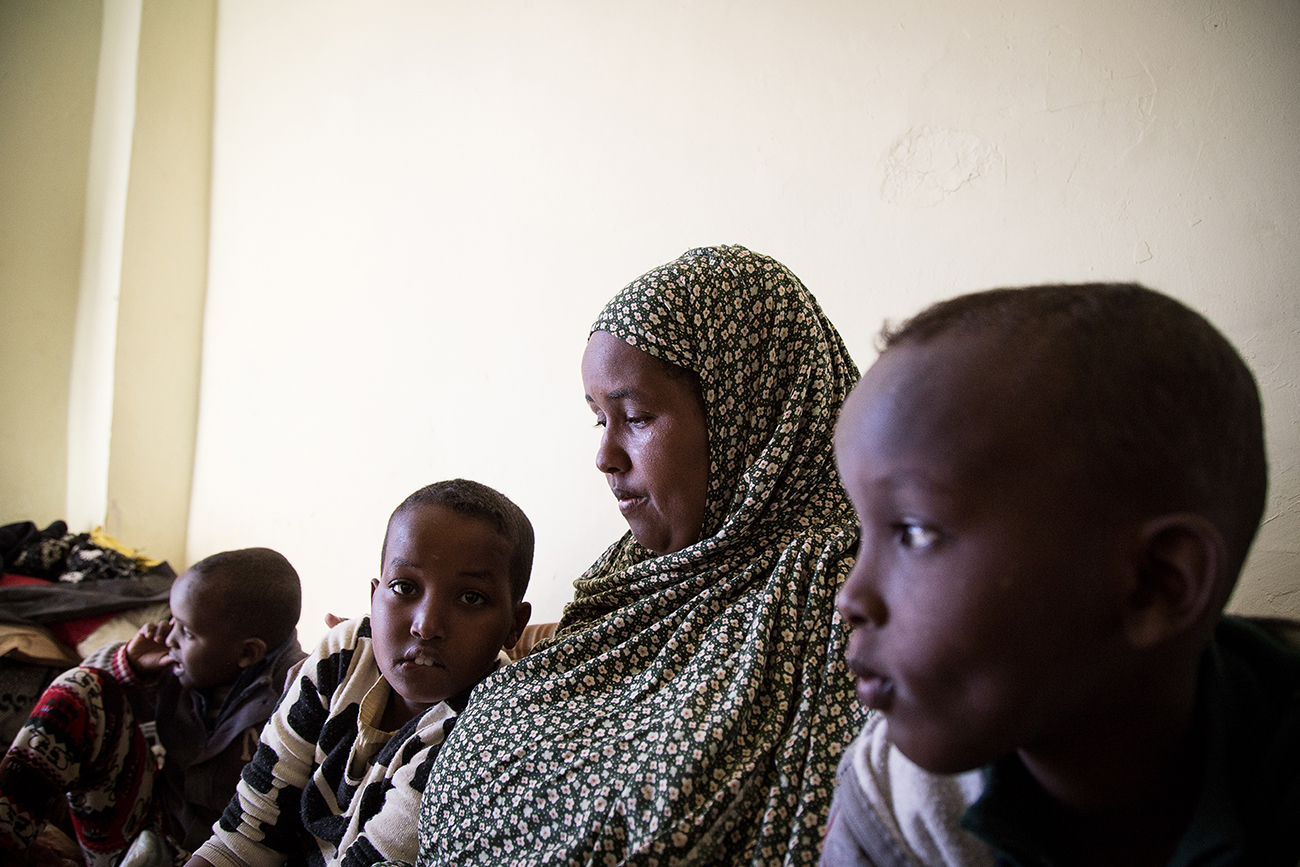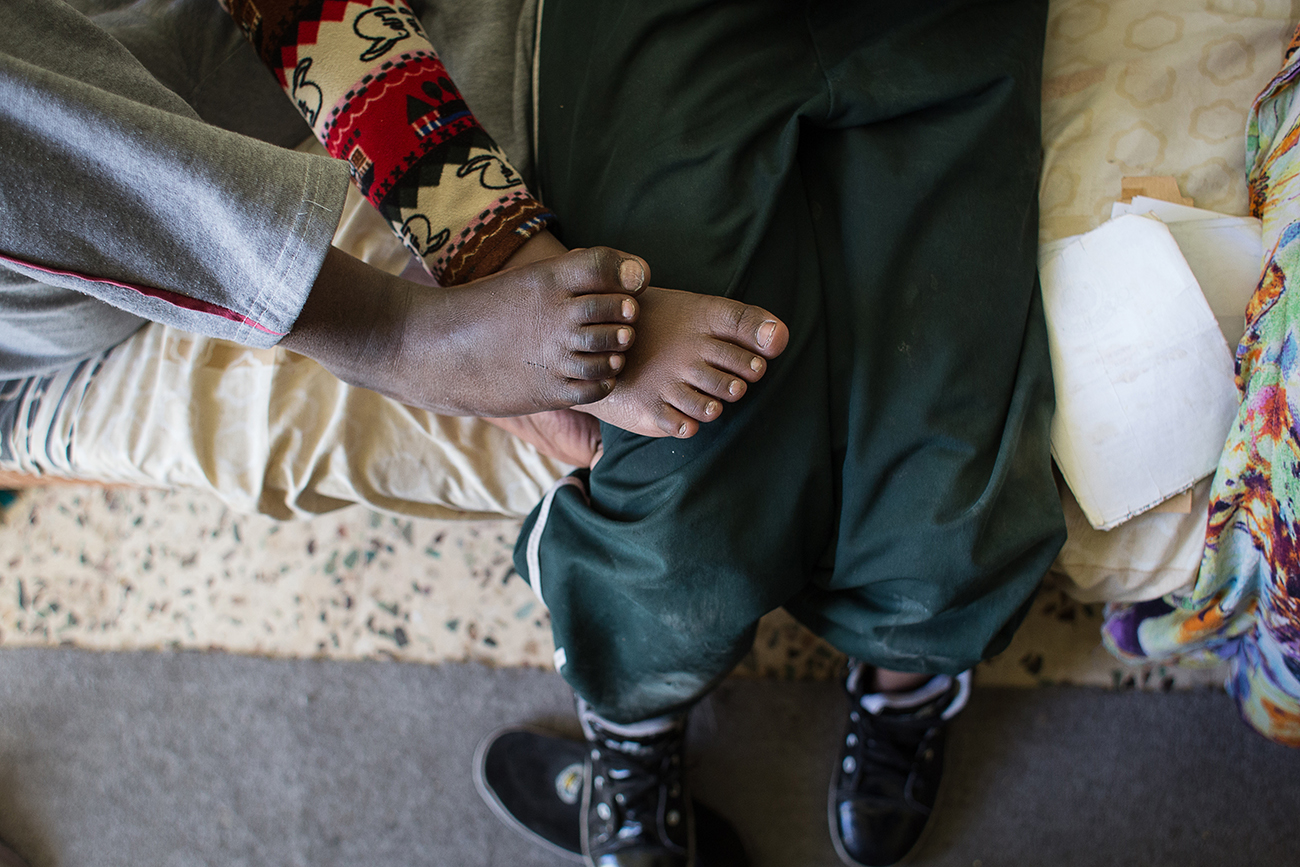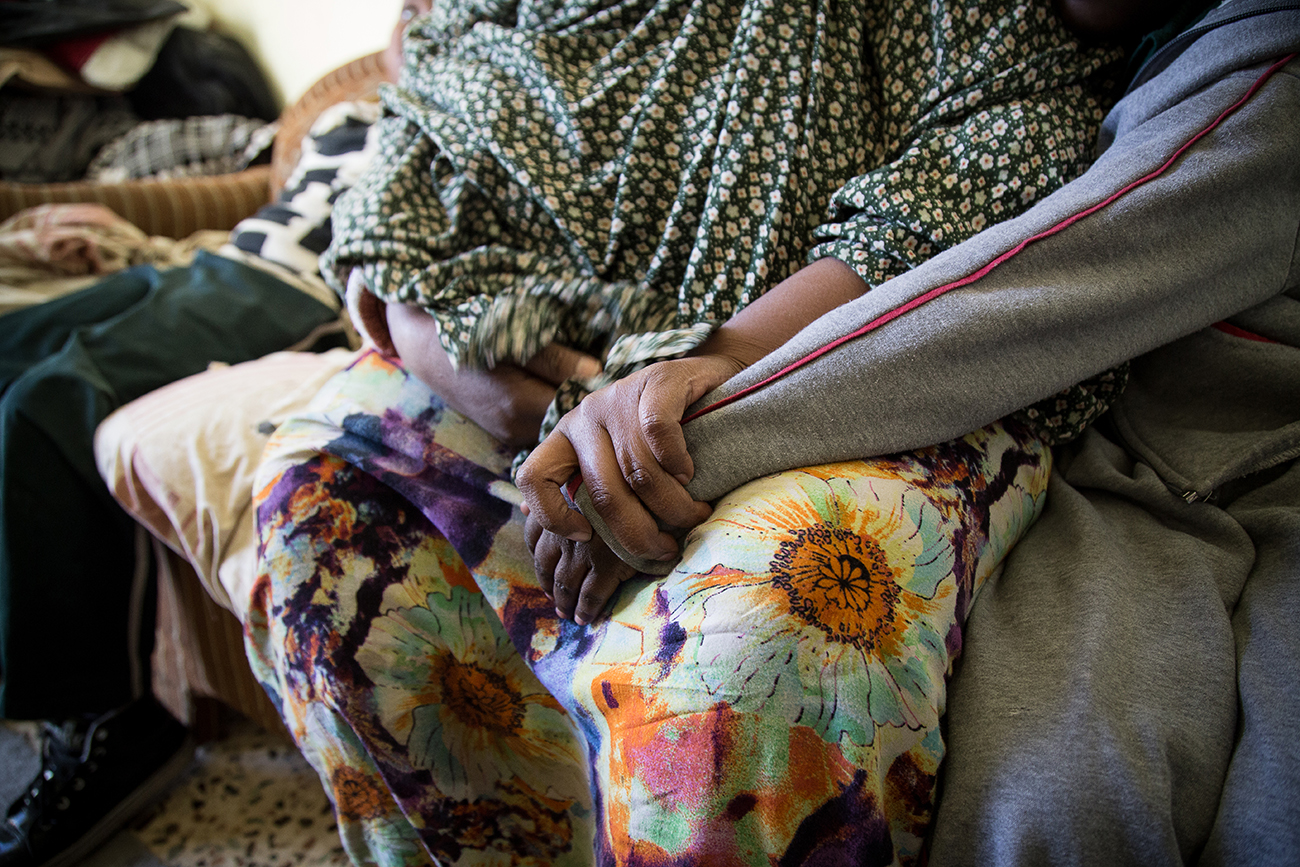Sadia Mahmoud Husni fled her home city of Mogadishu nine years ago with her eldest son Aymen, after losing her mother and son to the violence that had engulfed her country and her sister to starvation. Having left behind two daughters and the rest of her family, Umm Ayman [the mother of Ayman in Arabic] now lives in Jordan with her three sons, one of whom is autistic.
Umm Ayman obtained refugee status from UNHCR in 2008, ensuring her monthly assistance worth 195JD (274USD), of which she spends 120JD (169USD) per month on a two-bedroom apartment, full of worn-out furniture, some taken from the trash and some donated by neighbors. In addition to monthly cash assistance, UNHCR provides “a little” assistance in the way of health and education.
Umm Ayman’s concerns in Jordan are many. Her oldest son, ten year old Ayman, has not attended school for the past three years, after being assaulted by bullies multiple times at the local public school. Ayman’s mother requested assistance for her son’s issue from UNHCR, only to receive “advice” that she not send him back to that particular school. UNHCR employees offered no assistance in finding an alternative school. In the past four years, Ayman has only attended school for seven months.
The United Nations Children’s Fund (UNICEF), in partnership with UNHCR, is responsible for issues related to refugee children’s education, including school fees, textbooks and other costs of attendance, says al-Hawari.
However, Ayman’s desire to complete his education, which he expressed to 7iber in a few words before breaking out in tears, may be the least of his mother’s worries, who lives in constant fear for her second son who has little situational awareness due to his autism. Seven year old Hassan did not stop moving for a second during our meeting with his mother, one moment attempting to run out into the street and another playing with the furniture. Hassan’s condition is just one more reason why Umm Ayman cannot find work, on top of the fact that any work she did find would be illegal since Jordan places legal barriers between refugees and employment.
“Even if I broke the law and worked cleaning houses or went out to beg, Hassan might run out into the street and get lost. I’ve had to go get him from the Zahran Police Station more than once after the police picked him up. Go ask about us there, we’re well known Hassan and I,” says Umm Ayman.
In addition to preventing Umm Ayman from working, Hassan’s condition has also forced the family to relocate several times. Multiple landlords have requested that the family leave due to Hassan’s destruction of furniture or screaming late at night.
Even Umm Ayman’s attempt to reduce the cost of housing by inviting a Somali girl to live with the family and share in the rent payments ended in failure after Hassan tore up the girl’s personal documents and belongings.
Meanwhile, Hussein, Umm Ayman’s third son and the exact opposite of his twin-brother Hassan, waits for a space to open up at a nearby public school so that he can join his classmates who have now reached the second grade. Until now, the closest school to the family’s home has no space and schools farther away charge transportation fees that the family cannot afford.
Umm Ayman believes that the only solution for her and her family is resettlement in a third country where she can find work and a better life. However, this door was shut in Umm Ayman’s face when her request for resettlement was denied in 2009. Initially, the mother of three protested in front of the UNHCR, but her efforts ended with her signing a 10,000JD agreement at the local police station stating that she would not protest again.
The Jordanian authorities have the right to implement their laws related to public protests and the final responsibility for resettling refugees lies with those countries party to the 1951 Geneva Convention, says al-Hawari.
There are many reasons for Umm Ayman’s sleepless nights, most prominently Hassan, who she fears will escape the house during the night. The family’s neighbors have agreed to watch Hassan for two hours a day so that she can get some sleep.
At this point, Umm Ayman dreams of someone buying the family tickets back to Somalia as a last resort. “It’s not safe in Somalia, but I’d rather go back to my country than wither away here,” she says.


